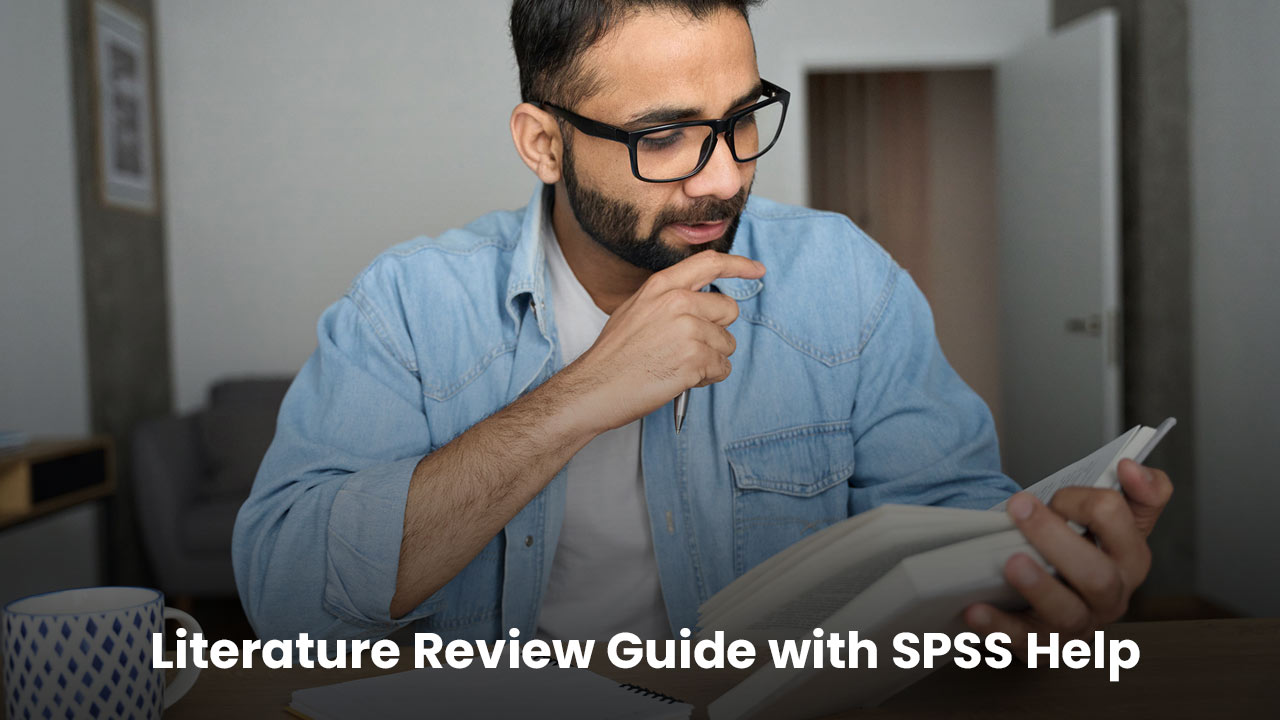-
(+44) 7842798340
Call us for enquiry -
Connect On Whatsapp (+44) 7842798340
Uninterrupted Access 24x7, 100% Confidential. - Connect Now

Writing a literature review is directly proportional to SPSS help. If you are making a research paper, a research proposal, a doctoral dissertation, or any other term paper and find it difficult then this situation describes you well here and you should read this blog further because we are going to make you familiar with writing a literature review. A literature review is a critical component within the family of these different academic papers. You might be writing a literature review as a stand-alone assignment or as a section of a more enormous document, you need to be sensitive and eager towards writing it. Writing a literature review demands your focus, attention, and your ability to read and reason with other writers. Let’s dive into the literature review guide to know about its important aspects.
It is a kind of academic assignment which discusses already published information. It basically summarises the concepts, perspectives, and insights of a previously published paper with new interpretations. A literature review suggests to the readers that you have accrued sufficient information about a given subject matter and apprehend wherein your study suits or fits the present frame of information. A literature review additionally provides a precis of previous studies and says how your present-day assignment is connected to those studies. It reveals that you have obtained some understanding from previous works, and your study is now a starting line for brand-spanking new ideas.
A literature review isn't like an educational study where an educational study paper develops a brand new argument and probably includes a literature overview as its part, but a literature review summarises, synthesises, and significantly analyses the arguments and thoughts of the opposite students or authors without including new contributions. A literature review for a study paper or another paper acts as a basis and guide for the brand-new insights that the instructional paper contributes.
A literature review is written to explain to the author why he/she chose to approach the selected topic of study. It provides a proper understanding of your study to your audience and readers. This document acts as a stepping stone for your study when you do not have enough time to conduct your research. For academic scholars, a well-structured and formatted literature review proves the ability of that particular scholar to study that subject field. In short, we can say that the purpose of writing a literature review is to offer a strong background for investigating a previously unsolved problem.
The main objectives of a literature review are as follows:
Composing a literature review includes its introduction, body content, and conclusion. Let us study them in detail.
This section should define the topic with its context. It must explain the future scope of the literature review. You need to verify the grounds and explanations for the writing. Here in this section, you need to provide the sequence of your paper, that is, its organising structure.
Body paragraphs of a literature review are the main text containers of the writing. It should contain the following:
Like any other academic paper, the conclusion of a literature review must wind up with everything you have included in your writing. It should include all the important points, gaps left by the previous studies, the current status of the study, its future scope for the new researchers, etc. Illustrate how your study has found solutions for the problems left by the former researchers and link your study to the current knowledge.
We are sharing some guiding principles for writing your literature review. These writing tips and tricks will help you write an outstanding document, let’s know about them.
Before the final submission, just go through this below-mentioned checklist so that you won’t miss anything important.

Composing a literature review requires great research and excellent writing skills because you are going to answer the questions left by the earlier research. It requires an outstanding focus and determination to finish writing it with proper referencing and citations and finally produce a properly structured and formatted document. We tried to provide a helping guide to you so that you can write your review without any hurdles. But if you still persist in any issues then you can avail of SPSS assignment help from some professional writers. We wish you good luck with your literature review writing and submission!